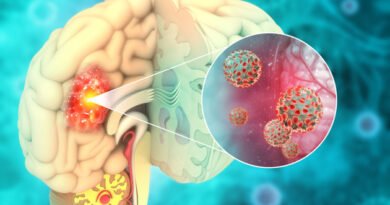
Vegan Nedir? Vegan Beslenmenin Anlamı Nasıldır?
Completely avoiding the consumption and use of animal products is a lifestyle principle. This approach extends beyond dietary habits to include the exclusion of animal products, by-products, and products tested on animals in clothing, cosmetics, cleaning products, and other daily necessities. Vegan nutrition is a type of diet that is entirely plant-based. This dietary style provides a rich array of foods such as fruits, vegetables, grains, legumes, nuts, and seeds.
This diet, which excludes the consumption of animal food and by-products, has gained popularity, especially in recent years due to increasing health awareness. The vegan diet has become a preferred way of eating to maintain a healthy lifestyle and to guard against chronic diseases like heart disease, obesity, and diabetes. However, a conscious approach is necessary for this diet to be sustainable. Care should be taken against the risk of deficiencies in certain vitamins and minerals, particularly B12, iron, and calcium.
What Does Vegan Mean?
Veganism is a philosophy and lifestyle that aims to avoid the use of animals for food, clothing, or any other purpose to the extent possible and practicable. Accordingly, it promotes the development and use of animal-free alternatives for the benefit of animals, humans, and the environment. You might ponder the question, “what does vegan mean?” in dietary terms. The vegan diet refers to the practice of abstaining from all products derived from animals, either completely or partially.
There are many ways to adopt a vegan lifestyle. However, the common denominator among all vegans is a plant-based diet that avoids all animal foods, including meat, dairy products, eggs, and honey, as well as fish and shellfish. Additionally, vegans avoid materials derived from animals, products tested on animals, and places that use animals for entertainment purposes.
How to Follow a Vegan Diet?
Vegan nutrition is achieved by consuming foods derived from plants, such as vegetables, grains, nuts, and fruits. Vegans do not consume animal-derived foods, including dairy products and eggs. The diet includes only plant-based foods, such as fruits, vegetables, beans, grains, nuts, and seeds. Those following this diet do not eat any animal foods, including dairy products, eggs, and honey.
The reasons for adopting this way of eating vary. Some vegans do it to improve their health because research shows that a plant-based diet can reduce the risk of certain diseases. Others refrain from meat due to their desire not to harm animals and to protect the environment. If you are considering trying a vegan diet, you may be wondering if this way of eating is right for you. While there are several real benefits to a meat-free diet, there are also some challenges.
What Are the Types of Vegan Diets?
There is no single vegan diet that suits everyone. Depending on your intentions, your diet may differ from those of other vegans. Generally, these differences target specific health outcomes. The most common types of vegan diets include:
Raw Vegan Diet
Those following a raw vegan diet only consume raw plant-based foods, primarily raw fruits and vegetables, raw nuts and seeds, sprouted and soaked grains, cold-pressed oils, and fermented foods like kimchi and miso. The theory behind this diet is that cooking destroys nutrients and diminishes food value. It is true that cooking can lead to losses in certain nutrients, such as vitamin C and some B vitamins. However, cooking can also increase the amount of healthy components in some foods; for example, the lycopene content in tomatoes increases when cooked.
This diet has its pros and cons. Fruits and vegetables are typically higher in vitamins and minerals, fiber for digestive health, and antioxidants that may help reduce the risk of cancer and other diseases. However, raw vegan diets can be very restrictive, potentially leading to insufficient intake of other key nutrients such as protein, vitamin D, vitamin B12, calcium, iron, and iodine. While a raw vegan diet can be safe in the short term for most people, long-term adherence can be risky.
Vegan Diabetic Diet
This diet consists of moderately low carbohydrates, focusing on whole grains, beans, and legumes rich in fiber to help control blood sugar levels. Protein sources include beans, legumes, nuts, seeds, tofu, tempeh, and seitan, complemented with healthy fats from avocados, coconut, and olive oils to maintain stable blood sugar.
High-Protein Vegan Diet
Protein is often one of the nutrients lacking in a vegan diet. The high-protein vegan diet addresses this issue by focusing on higher-protein plant foods. These may include:
- Nuts and seeds
- Beans
- Tofu
- Quinoa
- Oats
Some individuals frequently use vegan protein supplements made from legumes like soy and pea. This type of diet is popular among vegan athletes and bodybuilders who require more protein to support muscle growth and recovery. As long as you have sufficient variety in your diet, it is generally safe for most individuals.
What Does Vegan Product Mean?
It refers to products that contain no animal-derived ingredients and have not been tested on animals during their production process. Vegan products appear not only in the food industry but also in cosmetics, cleaning, clothing, and accessories. The main characteristic of vegan products is the complete exclusion of animal-based components, meaning that no animal products like meat, dairy, eggs, honey, gelatin, wool, silk, or leather, as well as by-products obtained from processing such materials, are used.
What Are the Benefits of Vegan Nutrition?
There are numerous potential benefits to veganism. A nutrient-dense, calorie-balanced vegan diet can help you reach or maintain a healthy weight. The vegan diet may also reduce the risk of various chronic diseases. The benefits of vegan nutrition include:
- A literature review conducted in 2021 showed that well-planned vegan diets may help prevent cardiovascular diseases and metabolic syndrome.
- A diet rich in plant foods, fruits, and vegetables can assist in maintaining a healthy weight.
- Research indicates that vegans consume significantly more vitamins, minerals, and nutrients compared to meat-eaters. This includes polyunsaturated fatty acids, alpha-linolenic acid (ALA), fiber, folate, vitamin E, magnesium, and vitamins B1, B6, and C.
- Some studies show that raising animals for meat, especially cattle, harms the land, water, and atmosphere more than growing grains, fruits, and vegetables. The vegan diet supports environmental sustainability.
What Are the Risks of Vegan Nutrition?
While a vegan diet can be highly nutritious, there are some potential risks. Avoiding animal foods may lead to deficiencies in several nutrients, including protein, calcium, omega-3 fatty acids, zinc, vitamins B12, and D. Protein is required to power all chemical reactions in your body, while calcium strengthens your bones and teeth. Omega-3 fatty acids keep your cells healthy and protect your heart by reducing the risk of heart disease and stroke.
These nutrients are especially important during childhood and pregnancy. If you are pregnant or have a health condition, it is advisable to consult your doctor before starting a vegan diet. A vegan diet is as healthy as you make it. Vegan ice cream, cookies, and candies might be tempting, but moderation is crucial. If you consume high-fat and processed foods in large quantities, you may experience many of the same health issues associated with a meat-based diet.



